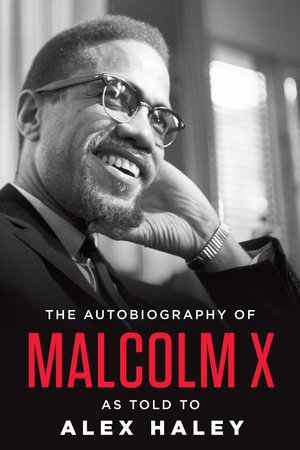
The Autobiography of Malcolm X As told to Alex Haley
“The Autobiography of Malcolm X” is a powerful and compelling biography that provides an in-depth look at one of the most influential and controversial figures in American history. The narrative, as told to Alex Haley, captures the transformation of Malcolm Little into Malcolm X, detailing his journey from a troubled youth to a prominent leader in the civil rights movement.
The book is divided into several sections, each reflecting significant phases of Malcolm X’s life. It starts with his early years, marked by poverty, crime, and incarceration. These experiences are portrayed with brutal honesty, showing the harsh realities of racism and the systemic barriers that shaped his early life. Malcolm’s conversion to the Nation of Islam while in prison marks a turning point, leading to his emergence as a passionate advocate for black empowerment and social justice.
One of the book’s strengths is its raw and unfiltered portrayal of Malcolm X’s evolving ideology. The narrative doesn’t shy away from his radical views, nor does it gloss over his later disillusionment with the Nation of Islam and his pilgrimage to Mecca, which broadened his perspective on race and unity. This transformation is profound and highlights his intellectual and spiritual growth, making him a more relatable and complex figure.
The autobiography is not just a personal story but also a historical document that provides insight into the social and political climate of the United States during the 1950s and 1960s. It delves into the struggles of the civil rights movement, the Black Muslim movement, and the broader fight against racial injustice. The book’s candidness and the depth of Malcolm X’s introspection make it a thought-provoking read that challenges readers to think critically about race, identity, and activism.
Pros:
1. Honest and Raw Narrative: The autobiography offers an unfiltered look at Malcolm X’s life, presenting both his strengths and flaws.
2. Historical Insight: It provides a detailed account of the social and political context of the civil rights era, enriching readers’ understanding of the period.
3. Inspirational Transformation: Malcolm X’s journey of self-discovery and ideological evolution is both inspiring and thought-provoking.
4. Engaging Writing: Alex Haley’s collaboration brings a cohesive and engaging storytelling style that makes the book a compelling read.
Cons:
1. Complex Language: Some readers may find the language and concepts challenging, particularly younger audiences or those not familiar with the historical context.
2. Intense Content: The book’s raw depiction of racism, violence, and radicalism can be intense and may not be suitable for all readers.
Subjective Note:
Reading “The Autobiography of Malcolm X” was a profoundly impactful experience. It challenged my preconceptions about activism and leadership, and Malcolm X’s journey from a street hustler to an international human rights figure was nothing short of inspiring. The book’s honest portrayal of his life and the transformative power of his beliefs made it a powerful reminder of the importance of standing up for justice and equality. For anyone interested in understanding the complexities of race relations and the power of personal transformation, this autobiography is an essential read.
